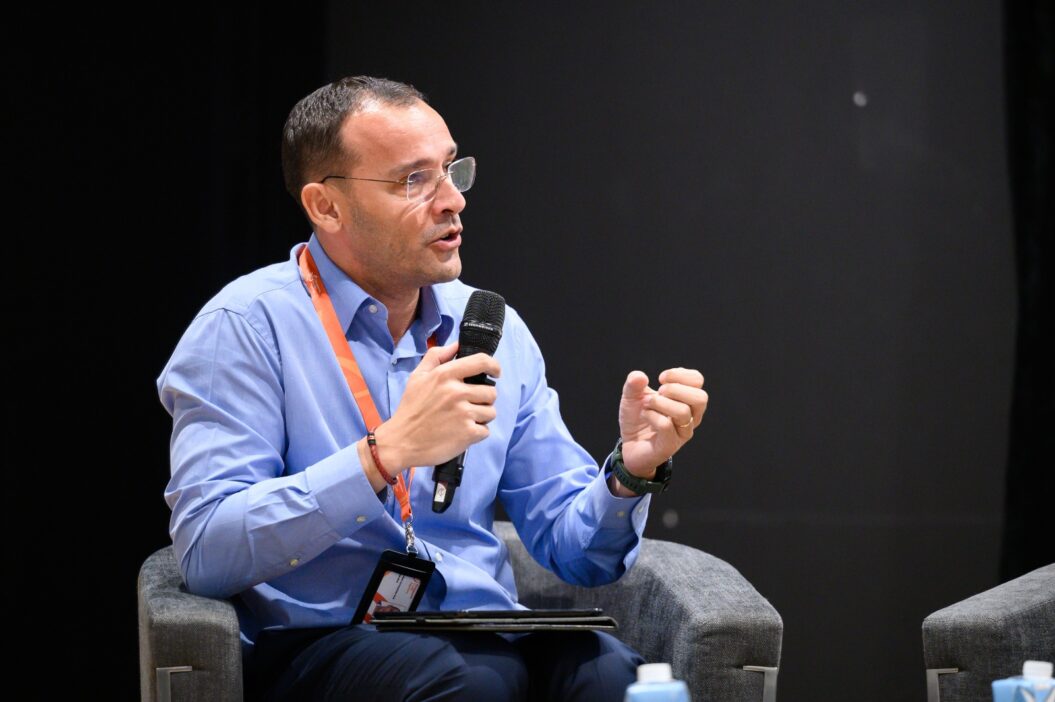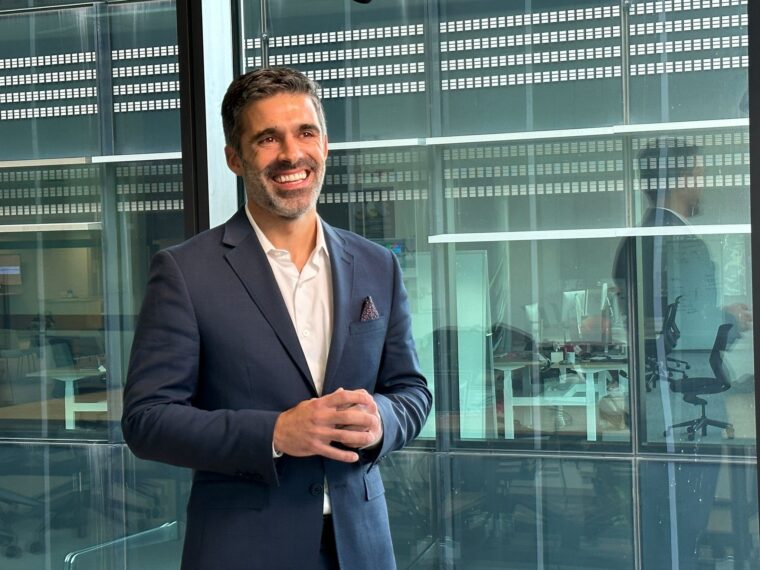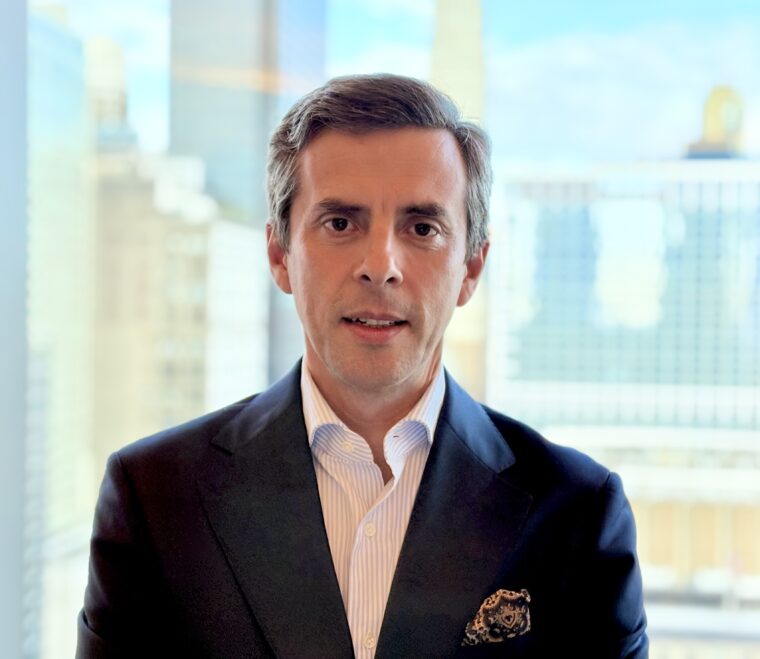As part of the partnership between the Portuguese Diaspora Council and Jornal de Negócios, Rui Gonçalves, Deputy Director at Singapore Food Agency, and Counselor of the Asia Regional Hub, was interviewed by Jornal de Negócios. In the interview, Rui Gonçalves discussed his professional journey and identified competitive opportunities for Portugal, its economy, companies, and entrepreneurs in general.
1 – WHAT LED YOU TO LEAVE PORTUGAL?
There were several reasons, among them curiosity and the desire to expose myself to a more dynamic and demanding job market, where I could find greater opportunities for personal and professional growth.
2 – WHAT ADVANTAGES OR DISADVANTAGES HAS THE FACT THAT YOU ARE PORTUGUESE BROUGHT YOU?
Being Portuguese has undoubtedly been an advantage. The Portuguese are generally well received in many international contexts, and in Southeast Asia there is a historical legacy that evokes sympathy and respect. Portugal is viewed with appreciation, and I must admit that being a fellow countryman of Cristiano Ronaldo has, more than once, helped break the ice in various social situations. Sometimes I almost feel like a celebrity by association!
3- WHAT OBSTACLES DID YOU HAVE TO OVERCOME AND HOW DID YOU DO IT?
Moving to a different country and professional context always comes with challenges, particularly related to bureaucracy — from visas and residence permits to children’s schooling and adapting to new administrative regulations. However, I believe that the Portuguese have a strong capacity for adaptation and a pragmatic attitude that allows us to ‘figure things out’ and find solutions. At the Singapore Food Agency (SFA), we are only three foreigners in a workforce of over 700 employees, which naturally brings cultural challenges, especially in communication, teamwork, and managing expectations. Over time, I have learned to adapt while maintaining authenticity, but adjusting certain behaviors. It is a continuous, demanding process, yet profoundly rewarding.
4 – WHAT DO YOU MOST ADMIRE ABOUT THE COUNTRY YOU ARE CURRENTLY IN?
What impresses me most about Singapore is the unique combination of safety, efficiency, and multiculturalism. Safety is remarkable, with extremely low crime rates. Efficiency is evident at every level, from public transportation to administrative services. Meanwhile, multiculturalism contributes to a cohesive and dynamic society, where different ethnic and religious groups coexist harmoniously. This diversity fosters innovation, resilience, and an open-minded outlook toward the world.
5 – WHAT DO YOU ADMIRE MOST ABOUT THE COMPANY / ORGANIZATION YOU ARE IN?
Working at the Singapore Food Agency (SFA), an entity with responsibilities equivalent to several Portuguese public institutions — such as DGAV, DGRM, ASAE, and the Ministry of Agriculture — is an extremely rewarding professional experience. I have the opportunity to participate in shaping the national aquaculture strategy, coordinating everything from the funding of research projects to the spatial planning of maritime and terrestrial areas designated for aquaculture. The coordination between different government agencies and the private sector is very effective, and my industry experience has been valuable in facilitating this bridge. The SFA impresses with its high level of strategic planning, long-term vision, and strong sense of collective mission. These qualities are, without a doubt, lessons I consider useful and replicable in Portugal.
6 – WHAT RECOMMENDATIONS DO YOU HAVE FOR PORTUGAL, ITS ENTREPRENEURS AND MANAGERS?
Portugal can draw important lessons from Singapore’s strategic approach, particularly in the agri-food and water management sectors. With a population of around 5.9 million — half that of Portugal — and a population density of 8,000 inhabitants/km² (compared to 112/km² in Portugal), Singapore faces territorial constraints and limited natural resources.
Yet, it currently ranks 28th on the Global Food Security Index (2023), with one of the highest per capita incomes in the world. Paradoxically, it imports about 90% of its food, which has led the country to invest in highly technological and resilient agricultural and aquaculture systems adapted to an urban context, such as vertical hydroponics and intensive aquaculture.
Portugal, despite having a high consumption of fish, for example (53.57 kg per capita vs. 23.04 kg EU average), still relies heavily on extractive fishing. Aquaculture accounts for only about 20.9 thousand tons out of a national total of 160 thousand tons. This makes the country vulnerable to external fluctuations and underscores the need to strengthen local production sustainably.
Moreover, Portugal has favorable conditions — access to clean energy, a strategic location, valuable natural resources — but lacks an integrated, forward-looking strategy that combines talent, academic knowledge, and investment. Strengthening the resilience of national primary production, similar to what Singapore has achieved with remarkable success, is urgently needed.
7 – IN WHICH SECTORS OF THE COUNTRY WHERE YOU LIVE CAN PORTUGUESE COMPANIES FIND CUSTOMERS?
The agri-food sector represents a clear opportunity. Highly urbanized Singapore values convenience and quality in food. There is a high consumption of meals outside the home, and for meals at home, practical, healthy, and ready-to-eat options are preferred. Portuguese companies offering innovative, high-quality food solutions find here an attractive and demanding market, open to differentiation.
8 – IN WHICH SECTORS IN PORTUGAL COULD COMPANIES IN THE COUNTRY WHERE YOU ARE WANT TO INVEST?
Singapore seeks to address its structural challenges through technology and strategic planning. I identify three areas where Singaporean companies can bring significant value to Portugal:
Water management: Singapore has drastically reduced its external dependency by using technologies such as desalination, wastewater reuse (NEWater), and efficient distribution. Portugal, which faces increasing water scarcity, would greatly benefit from this expertise.
Resilient food production: Singapore’s experience in developing robust production chains, even with limited resources, provides a model applicable to Portugal. In aquaculture, Portugal has great potential, but lacks a long-term strategic vision.
Digitalization and automation: Singapore’s expertise in smart farming, artificial intelligence, and efficient logistics chains can help modernize and make Portugal’s primary sectors more competitive.
9 – WHAT IS THE COMPETITIVE ADVANTAGE OF THE COUNTRY YOU ARE IN THAT COULD BE REPLICATED IN PORTUGAL?
Singapore’s main strength lies in its capacity for long-term strategic planning, supported by an efficient, transparent public administration with low levels of corruption. This integrated approach, combined with an ecosystem conducive to innovation and investment, creates ideal conditions for sustainable development. Portugal could greatly benefit from adopting a similar culture of structured planning, with clear goals and effective implementation mechanisms.
10 – ARE YOU THINKING OF RETURNING TO PORTUGAL? WHY?
Yes, returning to Portugal is in my plans. I am deeply connected to my country, its culture, and my family. I would very much like to return at a high point in my career, to contribute actively and meaningfully to national development, particularly in my area of expertise. However, the return depends on personal and professional factors. Portugal still faces challenges in terms of attracting and retaining specialized talent, which can sometimes be frustrating. Nevertheless, I remain optimistic and hopeful that new opportunities will arise, allowing me to return with impact and purpose.







